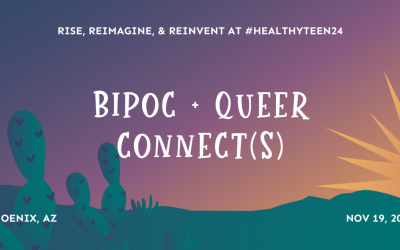
Why plain language matters more than “perfect” English.

By Patricia Natalie, MA
September 9, 2024
I often hear the praise—”Your English is so good!”—when people find out that I’m an immigrant who speaks English as a second language. Sometimes, they add, “You don’t have an accent!”
But what does it really mean to not have an accent? Doesn’t everyone have one? In America alone, there are about 30 major English dialects, and globally, around 150. If having “no accent” means sounding American, why is that seen as a compliment?
I first learned English when I moved from Indonesia to Singapore. The local dialect, “Singlish” (Singaporean English) blends English, Hokkien, Cantonese, and Malay in a very efficient way. It’s what you hear in coffee shops, food courts, and on public transit. But Singlish is considered broken English, while British English is seen as “proper.” The government even runs a Speak Good English Movement to promote British English and discourage people from speaking the local language.
When I moved to America, I had to relearn English. I grew tired of the perpetual foreigner stereotype that came with my accent, thanks to xenophobia and the anti-immigrant rhetoric. So, I adapted.
I switched from British to American words and learned to emphasize certain syllables. I picked up American idioms like “right off the bat” and “cross your i’s and dot your t’s” (did I still get that wrong?). I learned big words like “assuage” and “gregarious” for the SATs, though I still haven’t found the right opportunity to casually drop “sagacity” in conversations. I’ve also used corporate jargons like “touch base” and “circle back.”
I realized that “perfect” English is often tied with academia, Western culture, whiteness, power, and classism.
I realized that “perfect” English is often tied with academia, Western culture, whiteness, power, and classism. We tend to rank certain types of English higher than others because of linguistic racism, and anyone who doesn’t speak “standard” English can be stigmatized, marginalized, and even penalized.
Academia, which is predominantly white, often shapes English to be more exclusive, leaving diverse voices out. Non-standard English varieties like Black English (known as African American Vernacular English or AAVE) are wrongly seen as inferior. People are often judged as less capable when they speak non-standard English, equating proficiency and articulation with intelligence.
“The focus on the education of all racialized students in the U.S. since the 20th century—whether conquered, colonized, enslaved, immigrant, or refugee—has been the acquisition of what has been constructed as Standard English. However, what is different today is the discourse that surrounds an imagined language register that is called academic language and that is hailed as the panacea for academic and economic success.”
Ofelia García & Cristian R. Solorza, from Academic language and the minoritization of U.S. bilingual Latinx students
When we use plain language, we make improve accessibility and reduce confusion by making information easier to find, read, and understand.. At Healthy Teen Network, we prioritize plain language in all our resources and communications. In our Thrivology project, for example, our goal is to make research accessible and understandable. By translating complex ideas into plain language, our resources can bridge the gap between research and practice.
As youth-supporting professionals, using plain language can help us connect better with young people. Speaking clearly and simply makes it easier for young people to understand us and feel comfortable joining the conversation. When young people understand our words, they’re more likely to participate, ask questions, and share their ideas. Plain language helps to create a welcoming space where young people can feel respected and heard.
Plain language can break down barriers and build real connections. When we prioritize plain language, we’re showing young people that their voice matters no matter how they speak, and that they don’t need to meet a certain standard of “good English” to be valued.
Now, I try to consciously avoid big words when I speak. It takes some unlearning, for sure. I remind myself that clear communication often matters more than fancy vocabulary. And who knows—you might catch me dropping an Indonesian accent here and there, because why erase a part of our culture, history, and identity for the sake of speaking “good English”?
PHOTO CREDIT: ActionVance on Unsplash
Patricia is a curious learner who loves to ask questions and find patterns. If you look closer, you might see a literal light bulb above Patricia’s head when she sees a connection or realizes something in her research. Patricia loves using those insights to co-create changes—big or small—that make the world a better place. Having grown up in three different countries, Patricia sees the world differently and always makes time for travel. In her free time, Patricia can be found browsing offbeat Airbnbs or walking her sweet, black cat on a leash (yep—it's one of Patricia’s proudest accomplishments). Read more about Patricia.












